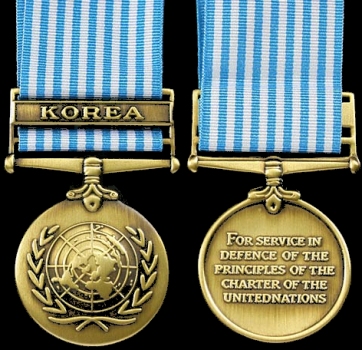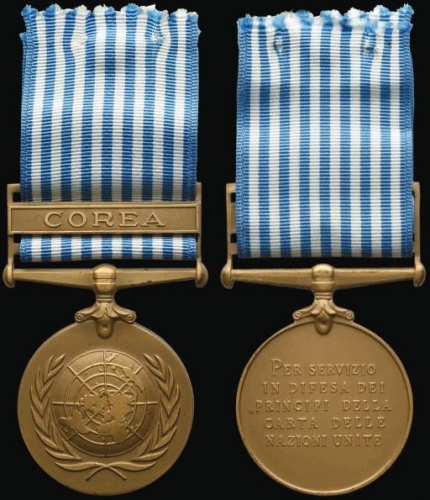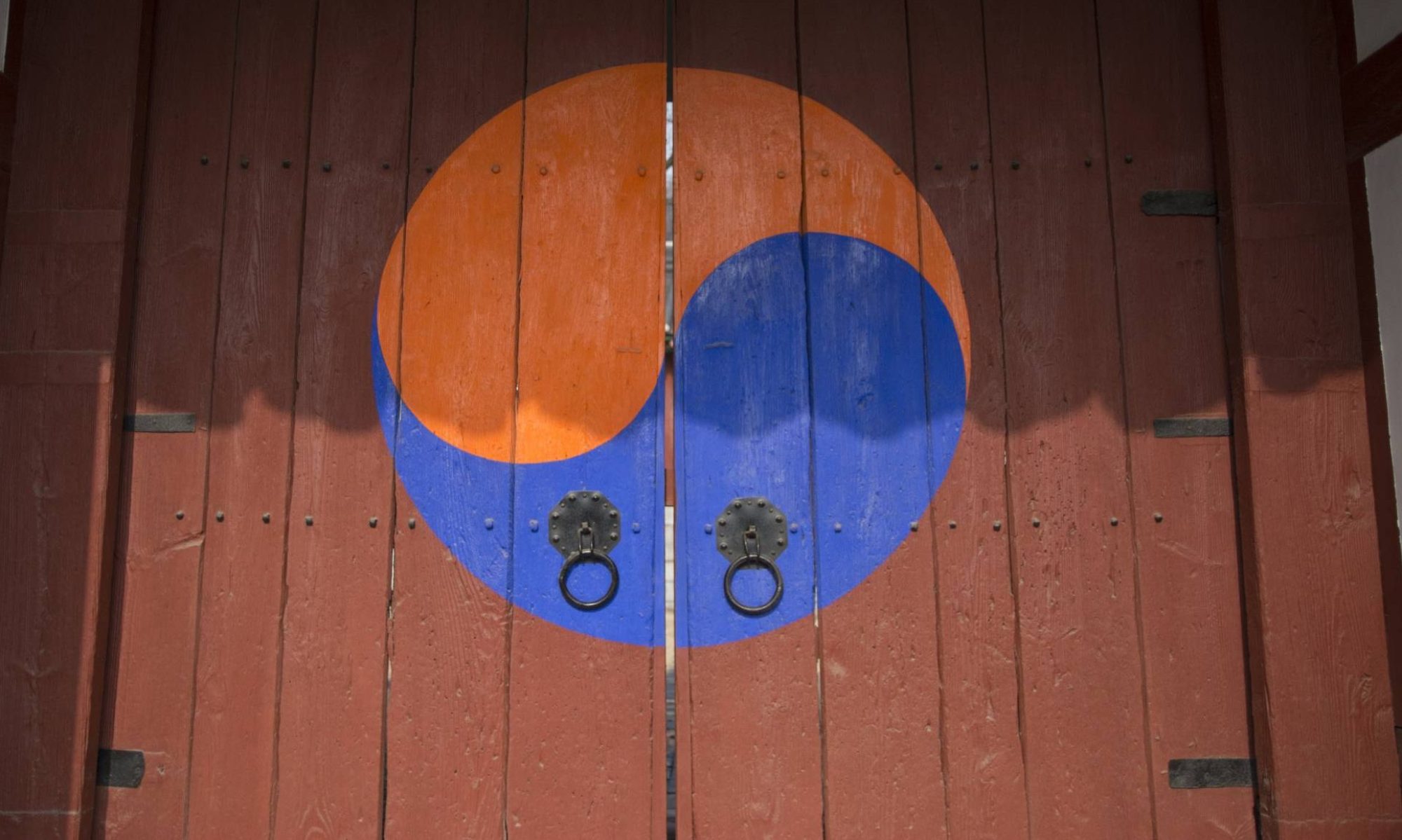United Nations Service Medal Korea (UNSMK)

The United Nations Service Medal Korea (UNSMK) is an international military decoration established by the United Nations on December 12, 1950. The decoration was the first international award ever created by the United Nations and recognized the multinational defense forces which participated in the Korean War.
Medal name
On November 22, 1961, the United Nations officially changed the name of the “United Nations Service Medal” to the “United Nations Service Medal Korea”. This was as a prelude to the creation of many subsequent United Nations medals, which are awarded for various peace keeping operations around the world. The United States and some other countries continue to refer to the medal as the “United Nations Service Medal” in an effort to maintain consistency with past military files referring to the medal by its original name.

Sold at auction by Morton and Eden, Auction #120, Dec 7, 2022, Lot #866, final bid £5,000 plus buyer’s commission and shipping.
Award Criteria
The United Nations Service Medal (Korea) is awarded to any military service member, of the Armed Force allied with South Korea, who participated in the defense of South Korea from North Korea between June 27, 1950, and July 27, 1954. The military forces of the Netherlands are awarded the medal for service to January 1, 1955, while the armed forces of Thailand and Sweden grant the award to July 27, 1955. International Red Cross personnel engaged for service during the war with any United Nations relief team in Korea were not eligible for the medal. And while International Red Cross members cannot receive the medal, Members of National Red Cross Societies, who actively participated in the Korean War, can wear the medal.
The ultimate award authority of the United Nations Service Medal is the United Nations Commander-in-Chief of military forces in Korea. Most countries consider the United Nations Service Medal an automatic decoration, if some other Korean service award was bestowed, and generally award the medal without requesting permission through United Nations channels. For instance, in the United States Armed Forces, any service member awarded the Korean Service Medal is automatically granted the United Nations Service Medal.
Description
The design of the medal was specified in Section II of the United Nations regulations issued on September 25, 1951. The UN Korea Medal is a 36 mm wide circular medal of bronze alloy. The obverse depicts the “World-in-a Wreath” emblem of the United Nations. The reverse has the bas-relief inscription: “FOR SERVICE IN DEFENCE OF THE PRINCIPLES OF THE CHARTER OF THE UNITED NATIONS”. Each participating country has the text in the most appropriate language, and the inscription may be in any one of the following languages: Amharic (Ethiopian Empire), Dutch, English, French, Greek, Italian, Korean, Spanish (Colombia), Tagolog (Philippines), Thai or Turkish. The medal hangs from a claw attachment on a straight bar suspension. Each medal is worn with a medal bar bearing the inscription KOREA in bas-relief and in the same language as the reverse inscription. The medal’s ribbon is made up of 17 stripes made up of 9 stripes in United Nations Blue (Bluebird 67117, R0 G158 B21) and 8 stripes in White, with each being 5⁄64 inch (2.0 mm) wide. Official United Nations documents list Danish, Sanskrit, and Swedish as three of the languages used on the medal. Several authoritative sources state that the Danes and Swedes accepted the English language version of the medal. Sanskrit was actually meant to be Hindi, but the Indians also accepted the English language version. There are no known examples of the medal in Sanskrit (Hindi). The Philippines has theirs in Tagalog, and although they are well known to collectors, this version is unofficial. Unofficial versions also exist for both the Spanish and the French versions. The medals for Turkey are sometimes found on red ribbons instead of the authorized United Nations blue and white ribbon. This is because the Turks have a centuries old feud with Greece and consequently refuse to wear the national colors of Greece.
